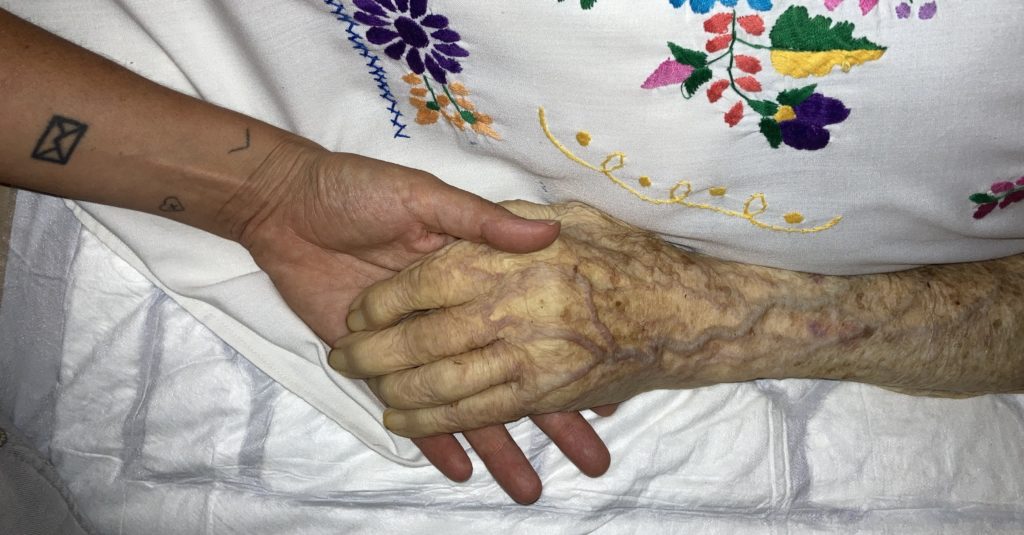Collective Learnings to Redesign Death
What does it mean to die in the Capitalocene? Is it possible to reduce the environmental impact in the dying process? How can we plan our funeral ceremony with ecological criteria? What voices are necessary when creating counter-hegemonic narratives about death? How do we decolonize our imaginations surrounding death? How can we approach other forms of ritualization without falling into extractivism? How do we confront abuses from the funeral lobby? How do we dismantle narratives from hegemonic moral systems that dictate how our mourning should be? What collective tools can we create?
“Collective Learnings to redesign death” has been selected by the Daniel and Nina Carasso Foundation as part of the “Componer saberes para imaginar y construir futuros sostenibles” call.
Over a two-year period, we will be developing an expanded laboratory of creation and experimentation with the aim of delving into the environmental impact of the funeral industry to promote an alternative vision of death through artistic experimentation and respect for our environment.
Addressing the question of how to redesign death requires a holistic and transdisciplinary approach, which is why we will collaborate with experts in different fields: Jordi Miralles, biologist and activist; Ana García, expert in neuroarchitecture; Cristina Noguer, expert in ecodesign and materials; La Poderosa, experts in performing arts; and Sarafina Landis, expert in ecofunerals and end-of-life support.
Death, old age, and illness have become market niches, and therefore, our fears are instrumentalized by the funeral, pharmaceutical, cosmetic, and medical industries. We die in the same way we live: manipulated by the industry to consume unnecessary and polluting products, generating an ecological footprint, disconnected from the earth and the cycles of life. The way to confront this is to change our value system. To regain awareness, presence, and care for all processes that are part of life, including death. To do so with a community and interdependent perspective.

Clara sujetando la mano de Mixin recién fallecidaJordi Miralles, collaborator of the project, explains, “Ecological burials can be less expensive, more environmentally respectful, and spiritually grounded, allowing for a more natural return to the earth.”
There are many ways to minimize the ecological footprint, from the transportation of the coffin to floral arrangements, including the choice of biodegradable, biosoluble, mycelium-based, or substrate-based funeral urns for planting trees. However, in Spain, laws are particularly restrictive, and the funeral lobby is very aggressive. The funeral industry distances us from natural processes and poisons the land, turning people’s grief into economic gains. The taboo around death benefits the industry and is also a form of social control and community disruption. Reclaiming agency in how we want to ritualize our dead is a political act.

